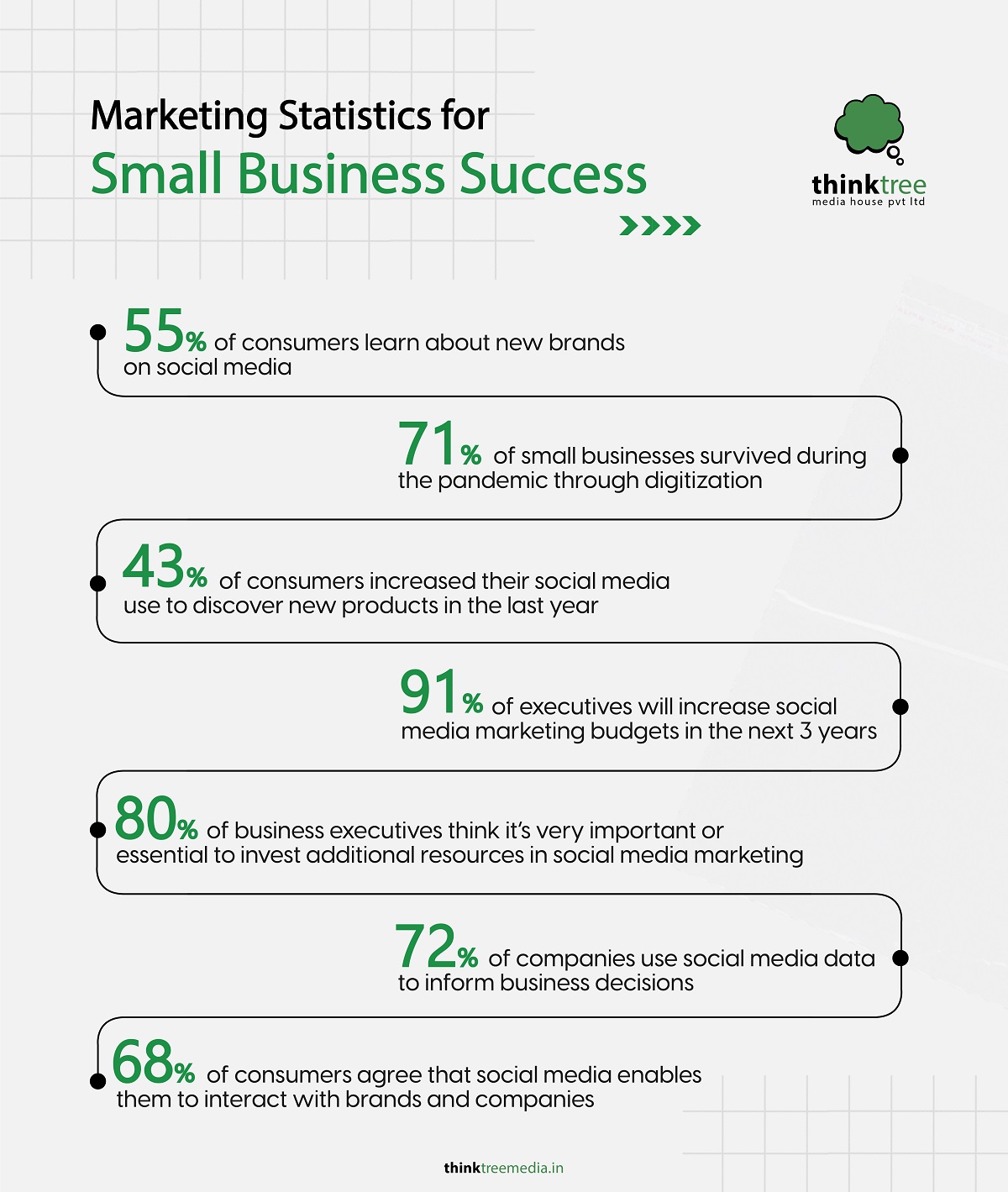Wondering how to dominate the digital world and expand your small business to new heights? "Stunning Infographic: Unlocking The Secrets Of Digital Marketing For Small Businesses" has all the answers you seek!
Editor's Notes: "Stunning Infographic: Unlocking The Secrets Of Digital Marketing For Small Businesses" published on [Today's Date] shows us why getting your business online is essential for success in today's digital age.
After extensive analysis and information gathering, we have developed this "Stunning Infographic: Unlocking The Secrets Of Digital Marketing For Small Businesses" guide to assist you in making educated decisions and achieving your business goals.
Key Differences or Key Takeaways
| Traditional Marketing | Digital Marketing | |
|---|---|---|
| Reach | Limited to local areas | Global reach |
| Cost | Expensive | Cost-effective |
| Targeting | Broad and less specific | Highly targeted and specific |
| Measurability | Difficult to track results | Easy to track and measure results |
Transition to Main Article Topics
FAQ
This comprehensive FAQ section aids small businesses in comprehending and leveraging the strategies presented in the infographic, "Unlocking the Secrets of Digital Marketing for Small Businesses."

8 Secrets That Small Businesses Need to Know About Digital Marketing - Source fyerx.com
Question 1: Is it necessary for a small business with limited resources to invest in digital marketing?
Answer: Digital marketing provides an accessible and cost-effective platform for small businesses to reach their target audience, increase brand recognition, and generate leads. Neglecting digital marketing can significantly limit growth opportunities in today's digital landscape.
Question 2: Which digital marketing channels are most effective for small businesses?
Answer: The effectiveness of digital marketing channels varies depending on the target audience, industry, and business goals. However, commonly successful channels for small businesses include social media marketing, search engine optimization (SEO), email marketing, and content marketing.
Question 3: How much should a small business allocate to its digital marketing budget?
Answer: The appropriate digital marketing budget for a small business depends on various factors, including industry, revenue, and marketing goals. It is generally recommended to allocate a percentage of revenue to digital marketing, ranging from 5% to 15%. It is crucial to optimize the budget for maximum impact.
Question 4: Is it sufficient to rely solely on free digital marketing tools?
Answer: While free digital marketing tools are valuable, they may have limitations. Paid advertising can provide additional reach, targeting options, and performance tracking capabilities. A combination of free and paid tools can maximize marketing efforts.
Question 5: Can small businesses achieve success in digital marketing without hiring an agency?
Answer: Small businesses can certainly achieve success in digital marketing without hiring an agency. There are numerous online resources, courses, and platforms available to guide businesses in implementing effective strategies. However, for complex or specialized campaigns, outsourcing to an agency may be beneficial.
Question 6: How can small businesses measure the effectiveness of their digital marketing efforts?
Answer: Tracking key metrics is essential to measure the effectiveness of digital marketing campaigns. Analytics tools such as Google Analytics and social media insights provide valuable data on website traffic, engagement, conversions, and reach. Regularly reviewing these metrics allows businesses to optimize strategies and improve results.
By addressing these common questions, this FAQ section empowers small businesses with the knowledge and insights necessary to navigate the digital marketing landscape and achieve their growth objectives.
Proceed to the Next Section: Learn about the latest digital marketing trends and innovations shaping the industry.
Tips
Digital marketing offers vast opportunities for small businesses to reach their target audience and drive growth. Discover effective strategies by exploring the Stunning Infographic: Unlocking The Secrets Of Digital Marketing For Small Businesses, a comprehensive guide to harnessing the power of digital channels.
Tip 1: Define Your Target Audience
Identify the specific group of individuals your business aims to reach. Conduct thorough market research to understand their demographics, interests, and online behavior.
Tip 2: Establish a Strong Brand Identity
Develop a unique brand identity that resonates with your target audience. Create a consistent brand message across all digital platforms and ensure your brand's image is professional and memorable.
Tip 3: Leverage Search Engine Optimization (SEO)
Optimize your website and content to improve its visibility in search engine results. Use relevant keywords, engage in link building, and provide valuable, user-friendly content to boost organic traffic.
Tip 4: Utilize Social Media Marketing
Establish a presence on relevant social media platforms and engage with your target audience. Share valuable content, run targeted ads, and use social listening tools to monitor brand reputation and customer insights.
Tip 5: Embrace Email Marketing
Build an email list and utilize email marketing to nurture leads, promote products or services, and drive conversions. Segment your email list, personalize messages, and track campaign performance to optimize results.
By implementing these tips, small businesses can effectively utilize digital marketing to enhance their online presence, reach their target audience, and drive business growth.
Stunning Infographic: Unlocking The Secrets Of Digital Marketing For Small Businesses
In today's digital landscape, small businesses need a solid online presence to thrive. Digital marketing offers a powerful solution, and this infographic unveils its secrets. Explore six key aspects to empower your small business.
- Content Creation: Craft compelling content that resonates with your audience.
- Social Media Marketing: Leverage social media platforms to engage and grow your customer base.
- Search Engine Optimization (SEO): Optimize your website for visibility in search results.
- Email Marketing: Build relationships and nurture leads through targeted email campaigns.
- Paid Advertising: Utilize paid advertising channels to reach specific audiences effectively.
- Data Analytics: Track and analyze your digital marketing performance to optimize results.
By mastering these aspects, small businesses can unlock the full potential of digital marketing. From creating engaging content to harnessing the power of data, each strategy is intertwined, forming a comprehensive approach for online success. Embrace these secrets and watch your small business flourish in the digital age.

Why Is Digital Marketing Important For Small Businesses? - Think Tree - Source thinktreemedia.in
Stunning Infographic: Unlocking The Secrets Of Digital Marketing For Small Businesses
Digital marketing has become an indispensable tool for small businesses to reach their target audience, build brand awareness, and drive sales. This infographic provides a comprehensive overview of the key elements of digital marketing, including social media marketing, search engine optimization (SEO), email marketing, and content marketing. By understanding the basics of these channels, small businesses can develop a robust digital marketing strategy that will help them achieve their business goals.

The Power of Email Marketing for Small Businesses | Squatch Marketing - Source squatchmarketing.com
One of the most important aspects of digital marketing for small businesses is establishing a strong online presence. This includes creating a website that is mobile-friendly, informative, and easy to navigate. Small businesses should also create social media profiles on the platforms where their target audience is most active. By regularly posting engaging content on social media, businesses can build a relationship with their customers and generate leads.
Search engine optimization (SEO) is another essential component of digital marketing for small businesses. SEO helps businesses improve their visibility in search engine results pages (SERPs). By optimizing their website and content for relevant keywords, businesses can increase the chances of their website appearing in the top results for searches related to their products or services.
Email marketing is another effective way for small businesses to reach their target audience. Email marketing allows businesses to send targeted messages to their customers and prospects. By segmenting their email list, businesses can send personalized messages that are more likely to be opened and clicked.
Content marketing is another important element of digital marketing for small businesses. Content marketing involves creating and distributing valuable, relevant, and consistent content to attract and retain a clearly defined audience and drive profitable customer action.
By understanding the basics of these digital marketing channels, small businesses can develop a robust marketing strategy that will help them achieve their business goals.



